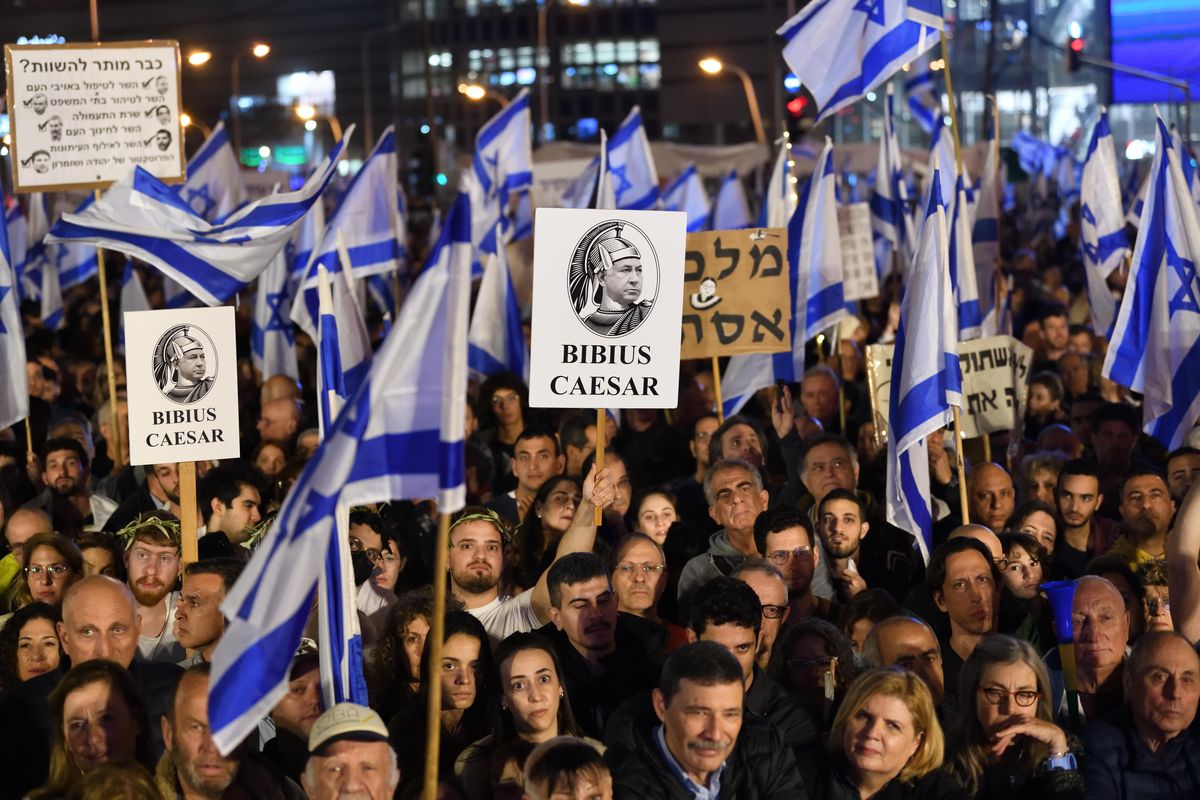Israelis protest proposed judiciary changes
Israelis took to the streets of Tel Aviv, Jerusalem, Haifa, and Beersheba on Saturday to protest judicial changes proposed by PM Benjamin “Bibi” Netanyahu’s new government, the country’s most right-wing coalition to date. While demonstrations have been underway for weeks, more than 100,000 people gathered in Tel Aviv in the biggest rally yet to oppose the proposed reforms that they fear will weaken the High Court of Justice’s power and independence. Bibi’s government feels the judiciary is biased against it and interfering with its ability to govern, and the PM is vowing to push through the reforms despite the outcry. On Sunday, meanwhile, Bibi finally dismissed key ally Aryeh Deri as interior and health minister, days after the high court ruled he was ineligible to hold a senior cabinet post due to a previous criminal conviction. Deri is head of the ultra-Orthodox Shas party, some of whose members had threatened to turn away from Bibi's wobbly government if the PM fired their boss. Just weeks in, this is another sign that Bibi is going to have a hell of a time keeping his coalition together.
Sweden’s NATO bid in trouble after Quran-burning protest
Sweden is scrambling to contain the political fallout from Saturday’s far-right, Quran-burning protest outside the Turkish embassy in Stockholm, which triggered rallies near the Swedish consulate in Istanbul. Because the Swedish government had given the go-ahead for the demonstration, Turkey had already canceled planned bilateral talks about Sweden’s NATO bid before the rally. Now, Ankara is condemning the burning of the holy book for Muslims as an Islamophobic hate crime. The incident gives President Recep Tayyip Erdoğan fodder for whipping up nationalist sentiment in Turkey ahead of the country’s general election in May or June, as well as extra leverage over other NATO members, all of whom are hoping Ankara relents. The Turks have been using the joint bid by Finland and Sweden to join NATO — which requires unanimous approval — to force the two countries to tighten laws that allow Turkish and Kurdish dissidents to go there. Erdogan is now expected to further delay his consent — perhaps until after the election.


















